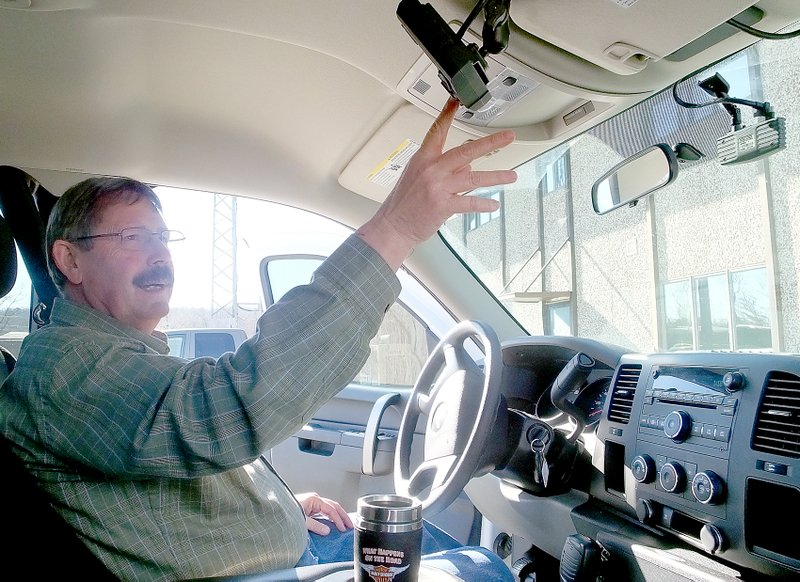In the wake of several controversial police-involved shootings, there are some nationally who feel officers should be required to wear cameras while on duty. But for small departments, Bella Vista Police Chief Ken Farmer says, it's "wait and see."
Farmer has concerns about the monetary hurdles of equipping every officer with an on-body camera, as well as privacy.
"It's something I'm for, and that my officers are prepared for," he said. "But I want certain assurances that videos won't end up online."
"The cameras are there to protect both parties," he added.
A member of the Arkansas Association of Chiefs of Police, a nonprofit statewide organization that seeks to improve law enforcement, Farmer said he and other members of the association are working on a model police manual for law enforcement agencies to use when utilizing on-body cameras.
"This has taken longer than any other policy," Farmer said. "There are a lot of gray areas to look at before it can be settled. Especially in regards to entering someone's home. The house is a sacred place -- someone's castle as the old saying goes -- and there are concerns about protecting people's privacy."
Farmer added that even though most police business is public record, there are still several occasions where video or audio should be protected for a specific amount of time, like during on-going investigations and court proceedings.
BVPD has, however, kept up with recent innovations in dash-cam technology.
In summer 2013, the department undertook a major endeavor to update its dash-cam system. Farmer said updates included everything from the cameras themselves to the storage database. Dash-cams are present in most of the department's patrol cars, and have been since the late 1990s, Farmer said.
"These (new) cameras can record in standard definition or 1080p, and some of their mics are incredible," Farmer said. "We can hear conversations like you were standing right there, even if the car happens to be several feet away."
Farmer said the cameras record on 24-hour loops and start filming when triggered. Triggering events range from an officer flipping on his emergency lights to when the vehicle reaches a certain speed.
What Farmer finds especially interesting about these cameras, is that "when an officer is in a collision and the sensors trigger to start filming, the camera can actually go back about 30 seconds or one minute prior to turning on and show us what led up to that wreck."
All of the recordings are digital, so when an officer pulls up to the station, wi-fi towers on the roof start downloading the video into its system. Officers are allowed to watch their video for report purposes, Farmer said, but that's all. In a span of 15-20 minutes, the recording can be viewed.
"This is much better than the old days with tapes and VCRs," Farmer noted.
Once a recording enters the system, Farmer can search through the database for a desired video. Recordings are meticulously labeled. Farmer can see when and where the recording occurred, its length and the type of incident, alongside other elements.
The station also has a "DVD robot" that can make physical copies of DVDs recordings. The discs are labeled with information that matches what's in the database.
"There's also a way to prevent the video from being distributed," Farmer said. "We use (proprietary security features) that prevent the DVD from being viewed unless that person has the designated player. You can't just pop the disc into any system and watch it."
Earlier this month, the Northwest Arkansas Democrat-Gazette reported that Benton County Sheriff Kelley Cradduck wants body cameras for some of his deputies. Cradduck noted, however, that funding could prevent implementation.
Citing his support for on-body cameras, Cradduck said "we're looking for ways to fund it ... we want to try and get the highest quality cameras that we can."
Farmer said on-body cameras can be expensive, costing up to $1,000 an officer. Still, Farmer said, he'd like to see progress "sooner rather than later."
"There are some downfalls of that system, like where the camera could be located on an officer to keep it from being damaged and when it should and shouldn't be turned on," Farmer said. "But in the long run we're better off waiting for the technology to catch up so we can integrate it into the system we have now."
General News on 01/21/2015
